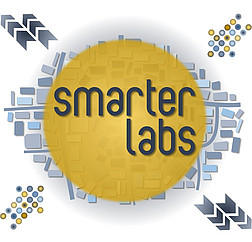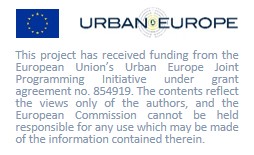Living Lab Experiment Brussels
The Living Lab experiment in short: The Living Lab experiment in the Brussels-Capital Region consists of a series of participatory measurements of air quality in different areas of the city-region. The aim is to develop knowledge among citizens on the impact of urban traffic flows on local air pollution and to use this knowledge to co-design - together with other urban stakeholders - more sustainable solutions for the mobility problems in Brussels.
Context of experiment: The Living Lab experiment will take place in the context of recent and scheduled interventions in the mobility–space nexus, aimed at reducing the dominance of car mobility in Brussels. The interventions range from pedestrianizing the central lanes in the old centre of Brussels and tearing down the Reyers viaduct (part of one of the main road arteries of Brussels), to various other infrastructural projects on the inner ring road (Kleine Ring/Petite Ceinture) and throughout Brussels. These interventions have the potential of radically improving the quality of life in Brussels by giving more space to sustainable modes of mobility (e.g. public transport, biking, walking). At the same time, these localised strategies are very ambivalent as there is a danger that they will only have the effect of redirecting car traffic to and increasing air pollution in other areas of the city-region. The Living Lab experiment will map and measure this uneven sociospatial distribution of air Pollution in Brussels, working together with Bruxelles Environnement/Leefmilieu Brussel and other stakeholders in order to investigate how all social groups in all areas of Brussels can benefit from a shift towards sustainable urban mobility.
Governance context: The governance context of urban mobility challenges in the Brussels Living Lab experiment is extraordinarily complex. Different governance regimes on different levels interact and co-evolve, but also create recurring situations of institutional ‘lock-in’. In contrast to many other cities, mobility as a policy domain in Brussel is not coordinated by one leading government or government department, but instead by multiple governments and quasi-government agencies, as well as communities. In Brussels, citizen science and measurement campaigns have proven to be valuable tools to mobilize urban citizens for air quality. However, the position of public administrations tends to be mixed: on the one hand public authorities themselves take the initiative to conduct participatory measurement campaigns using mobile devices (e.g. ExpAIR project), on the other hand similar campaigns initiated by citizens are sometimes perceived as a form of criticism towards public authorities or are received with skepticism.
For the Living Lab experiment BRAL and VUB will engage with Bruxelles Environnement/Leefmilieu Brussel, the public service responsible for the environment and energy in the Brussels-Capital Region. It is tasked with conducting research, planning and providing advice on environmental issues. It also helps the authorities and businesses in Brussels to develop environmental plans.
The Living Lab experiment – aim & organization: The Living Lab experiment will focus on a collective concern – urban air pollution – to mobilize urban citizens and other stakeholders to investigate more sustainable solutions to the mobility problems in Brussels. BRAL and VUB will develop a living lab in which citizens, organisations, experts and public authorities work together to better understand the effects of urban mobility on air quality. Part of the innovation of this Project consists not only in introducing public authorities to this citizen dynamic, but by actually creating a cooperation between public authorities and the participants involved in the participatory measurements. The project’s target audience is ethnic-culturally and socio-economically diverse, reflecting the diversity of Brussels. Also, the urban areas most affected by the adverse impacts of heavy traffic tend to be socio-economically vulnerable areas and particular attention will be paid to including these groups in the project. BRAL is perfectly situated to ensure this inclusion, since it has access to a large network of local organisations, neighbourhood committees and activists throughout the city.
The experiment consists of four phases (that are repeated in a number of districts of the Brussels City region) that broadly reflect the generic steps described in the WP4 description. In the first phase, participants are selected and jointly the experiments are designed in detail and learning goals defined in the context of a shared vision of a smart city. In the second phase, citizens will take part in participatory measurements to map air quality. As part of the recruitment procedure, they will follow a 1-hour crash course on the science of air pollution: differentiation of pollutants and their causes, impact on health, importance of measuring on the ground, and guidelines to handle the equipment. This will be followed by a 5-day measurement campaign. After the lab has processed the data, participants receive from the lab a report that explains their individual measurement results. In the third phase, measurement results are compiled in one collective/synthetic map, which is presented to and discussed with the participants. This session is also used to draw practical conclusions from the measurements concerning what can be done to improve air quality. In the fourth phase, participants will be empowered in their role as citizens and will explore strategies to shape relevant policies and urban mobility regimes. Finally, the effects of the Living Lab are evaluated through interviews and a joint reflection workshop.
Expected results: At the most practical level, the Living Lab experiment will produce a highly detailed(street-level) air pollution map of Brussels, which has been compiled on the basis of citizen science and participatory measurements. In addition, these measurements and mappings are used to developa learning process that empowers citizens (in particular those usually excluded from the realms of policy and scientific knowledge) and to generate deep insights into the interaction between citizens and public authorities and the barriers to large-scale change of the socio-technical system of urban mobility.
Partners: Vrije Universiteit Brussel, BRAL, Bruxelles Environnement/Leefmilieu Brussel


